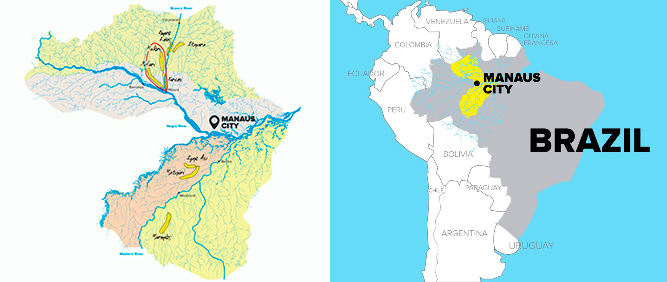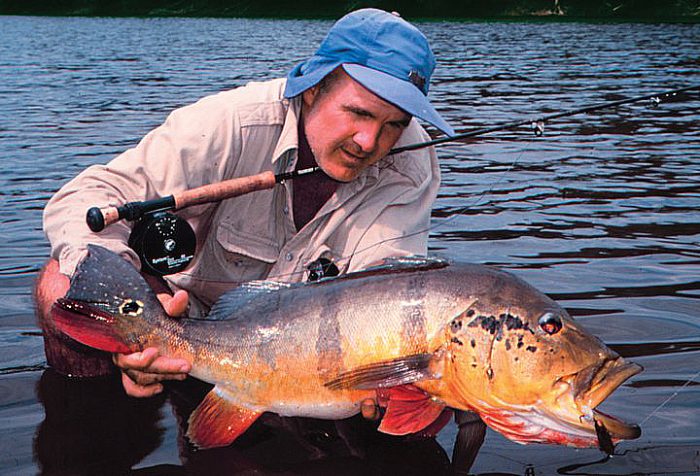
Born and raised in South America, Luis Brown, age 73, was educated in the US with a MS from the Wharton School of Finance. He was owner and CEO of paper, pulp, lumber, and cattle operations until the late 80s.
Since 1992, he devotes his time through his company, River Plate Anglers (RPA), to various socio-environmental projects in the Brazilian Amazon Rainforest.
Profit Sharing with Communities Across 14 Rivers
There is NO advantage to fishing remote areas unless they are guarded the way ours are by members of indigenous and non-indigenous communities. When unguarded, remote waters can be just as lifeless as more readily accessible waters.
The key to our success in the Amazon over the last three decades has been winning and keeping the trust of local communities along our 14 private rivers. We treat the members of these communities — which range in size from 40 to 150 families — as stakeholders in our operations. They share in the profits and employment opportunities that are generated on the rivers that flow through their lands.
Peacock bass are territorial; that is, they tend to stay in a fairly small área. And, it takes 10 to 12 years for them to reach 20 pounds. Obviously, trophy fish are available in greater numbers in fisheries such as ours because there’s greater value in preservation than in depredation for those that live side-by-side with them.
In 2004, River Plate Anglers (RPA) initiated a major conservancy project designed to persuade locals to curtail commercial fishing in our catch-and-release sportfishing areas. This ensured that our anglers would enjoy the finest Peacock Bass fishing experience in the Amazon. In return for this concession by the rainforest communities , RPA entered into a long term profit sharing agreement homologated by the Brazilian authorities and renewable for posterity via community plebiscite voting .
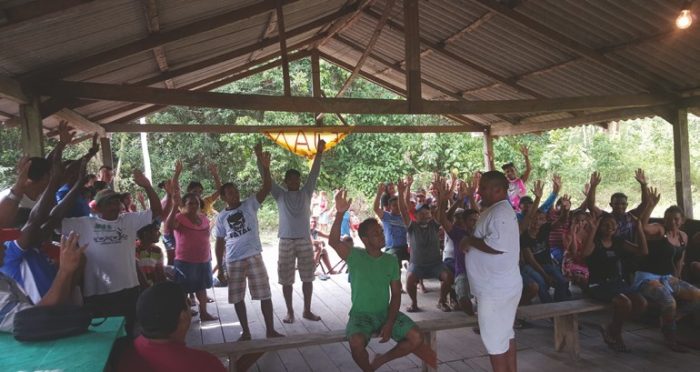
Over the years, the profit-sharing resources evolved into Community Based Preservation Management (CBPMs) programs on over 30 million acres of rainforest water basins surrounding 14 rivers extending outward from the City of Manaus in a 1,000-mile-diameter semi-circle.
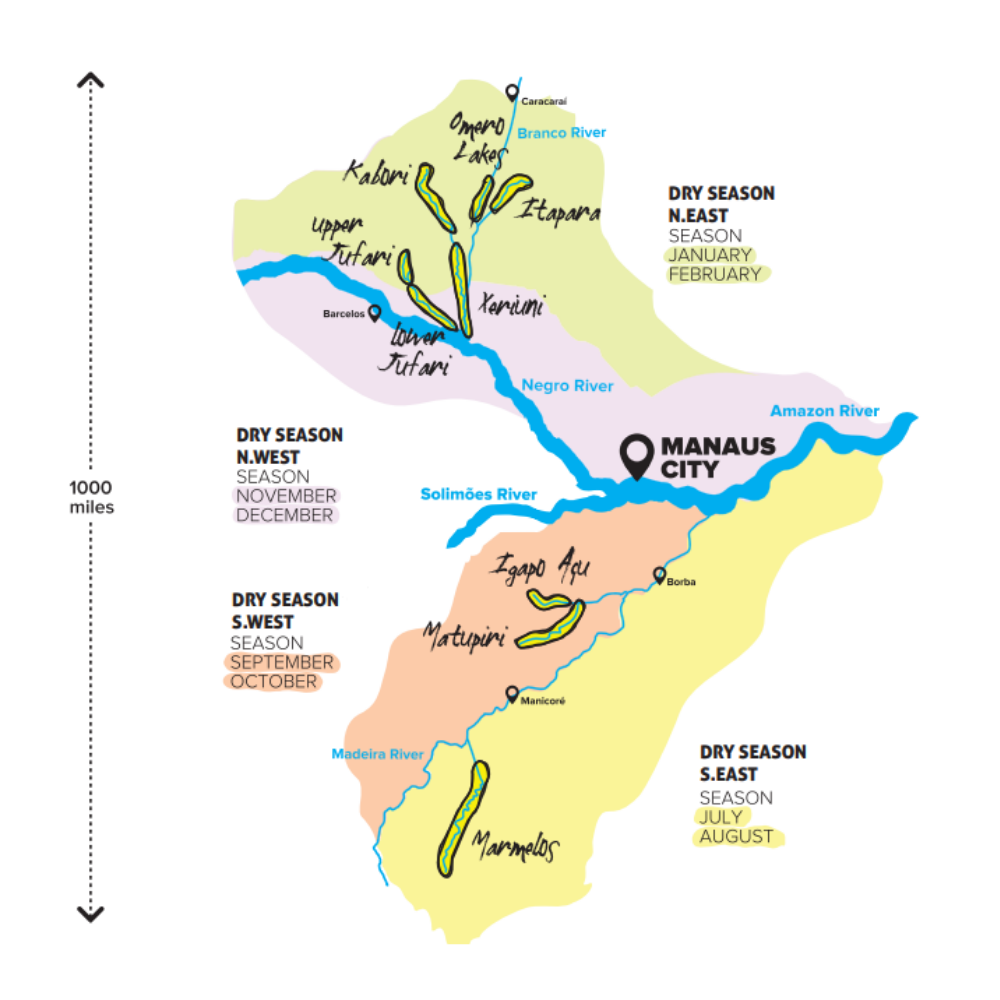
These programs benefit more than 1,400 families. This is the epicenter of the Peacock Bass recreational fishing industry where RPA operates eight luxury mobile safari camps called River Trains.
Initially it envolved subsidizing local production for the food chain supply for the sportfishing lodges ( River Trains).It’s an inspiring story you may want to view by clicking LOCAL FOOD SUPPLY. If not, just be aware that your trip fees are helping conserve the health and well being of some very warm and wonderful people who control what happens on 30 million acres of primeval forest. They thank you.
In the second stage, it included training centers for all of the guides and staff. And over the last 15 years it included guards at the entry of the rivers
The CBPM sustainability model has been proven a success. Consolidating and expanding it in the communities we work with, and providing a model
Today, the CBPM sustainability program has proven beneficial for all stakeholders — local communities, visiting sport anglers, RPA —and, a model for similar programs elsewhere.
Sport Fishing Impact Study-2002
River Plate Anglers sponsored the first project with the Instituto Nacional de Pesquisas da Amazônia (INPA), to determine the impact of catch and release fishing on peacock bass populations along with investigators B.Forsberg and M.Thome
Break-Through in Indigenous Legislation-2005
River Plate became the first outfitter in Brazil to obtain legal fishing permits for Indian reserves by the Miniterio Publico Federal (public federal court) . This precedent provided a model for similar fishing permits elsewhere .
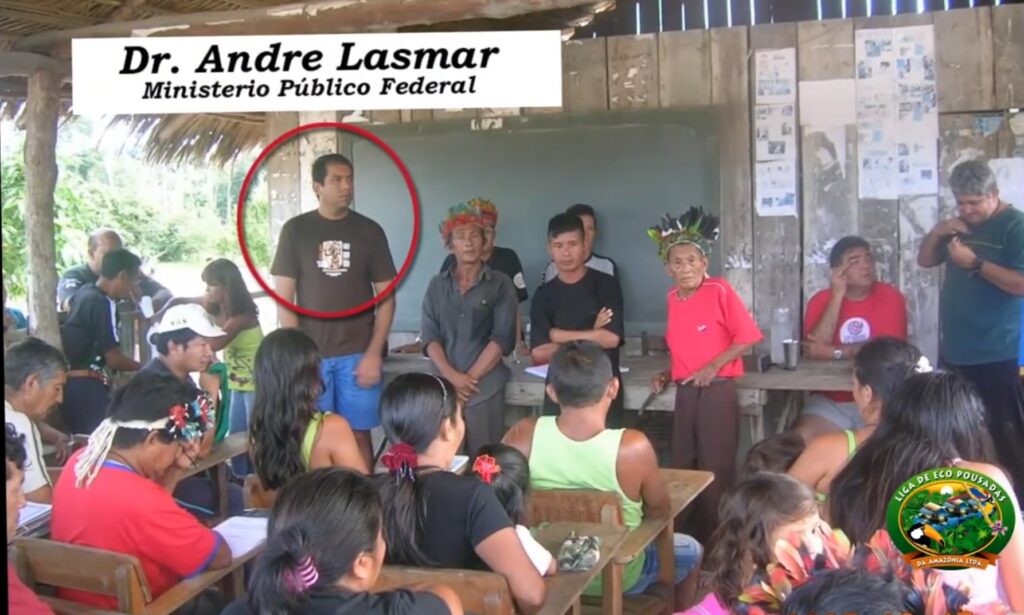
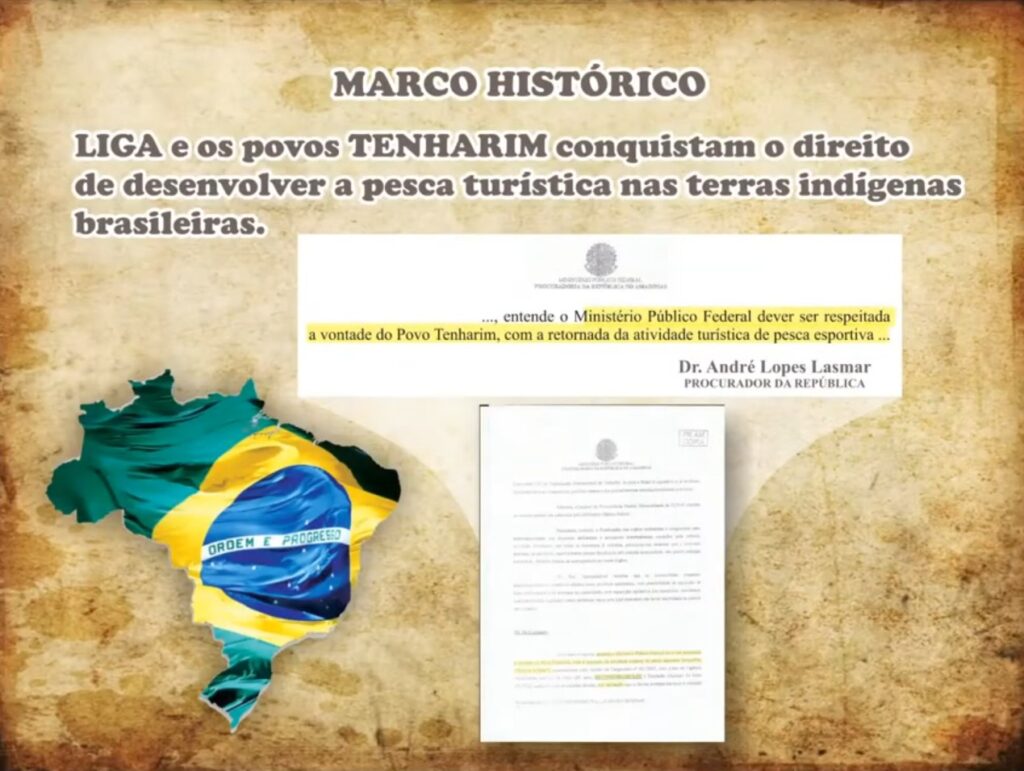
Housing for The Homeless -2010
River Plate Anglers donated 250 acres of urban land to the town of Roranopolis as part of the development of a sportfishing management plan for the Itapara river, which today is one of our 14 private rivers.
The land was set aside primarily for public housing projects for homeless jungle migrants.
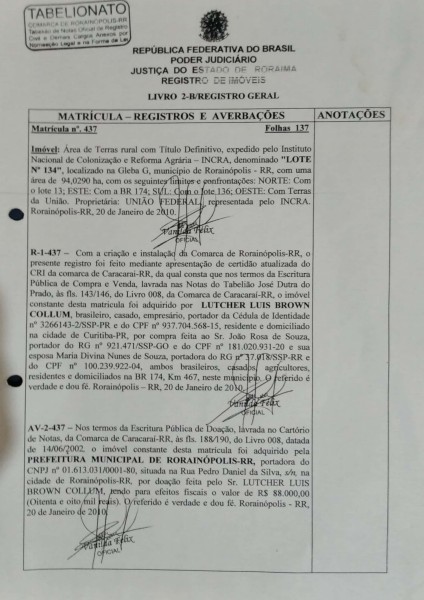
Preservation Parks- 2012
River Plate partnered in cooperation with Amazon authorities in the creation of preservation parks within the river basins of the itapara, Xeriuni and Jufari rivers. Altogether, these parks are part of our 30 million acres of protected wilderness surrounding the remote 14 rivers which we operate.
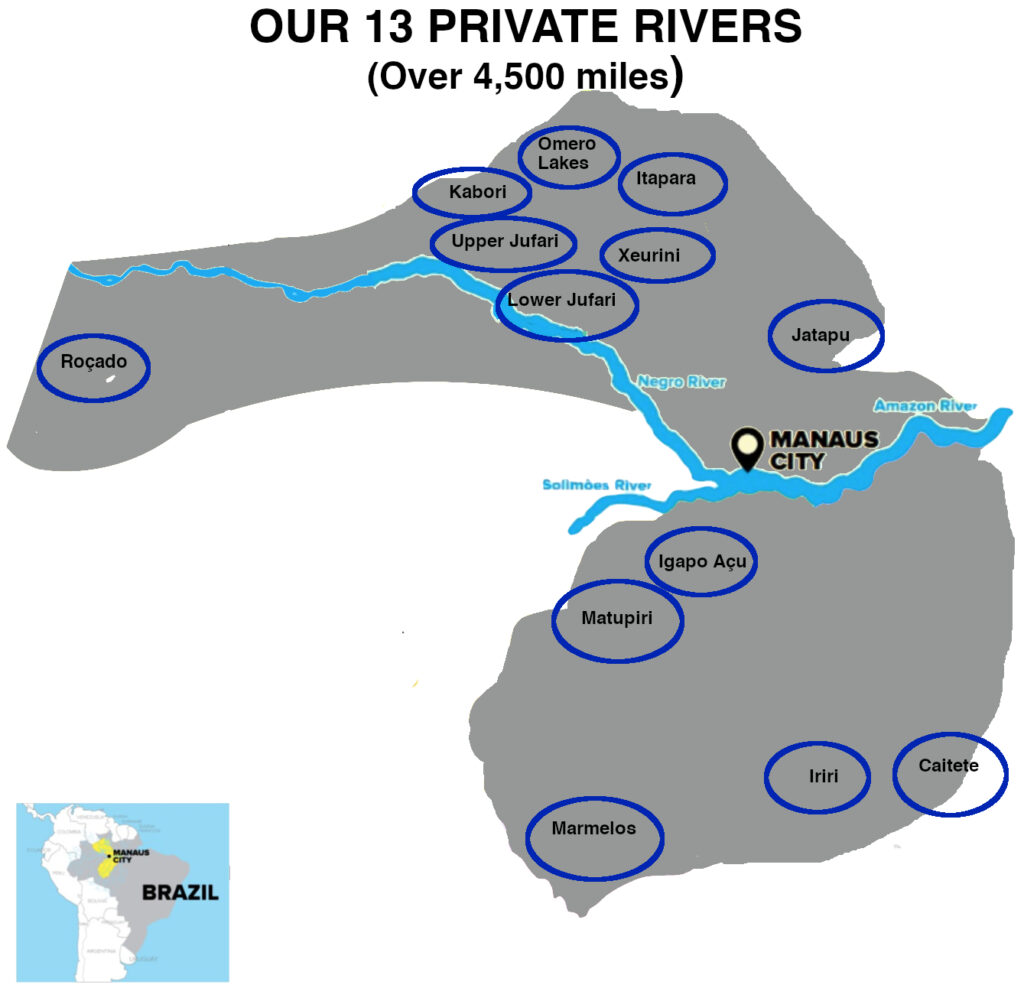
Learning at a Distance-2012
RPA donated a broadband satellite connection for the implementation of a distance learning program for local children through the high school level.
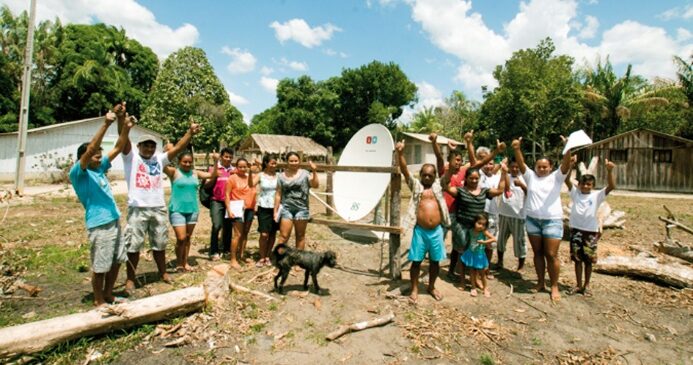
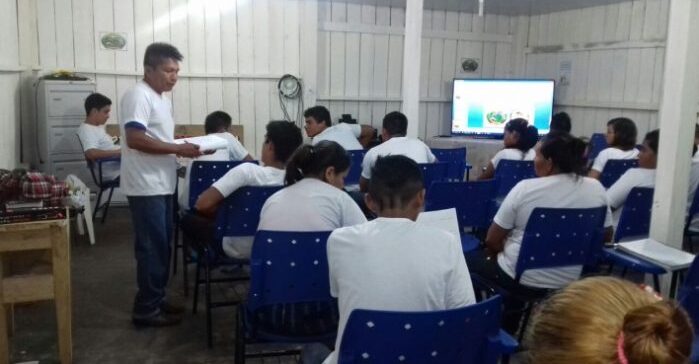
The program benefited 350 families in six communities across more than 4 million acres and three watersheds, including the Jufari, Xeriuni and Amajau rivers. (see red circle in map below) .
